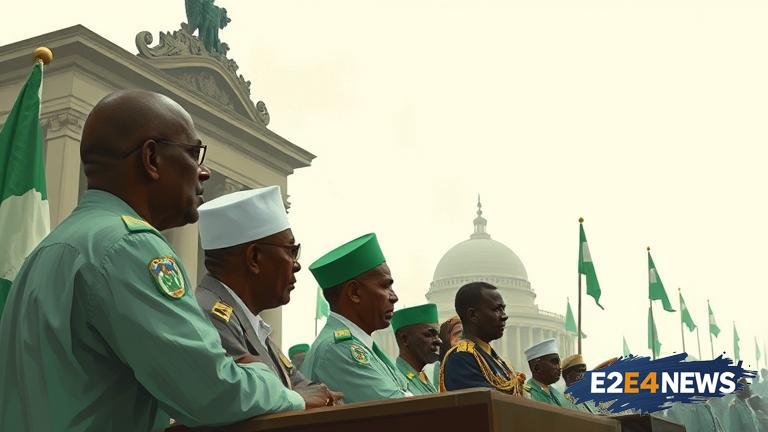The recent suspension of elected public officers in a state in Nigeria has brought to the forefront the contentious issue of the constitutionality of such actions. The suspension, which was carried out by the state government, has been met with widespread criticism and condemnation from various quarters, including the opposition party and civil society organizations. The main argument against the suspension is that it is a clear violation of the constitutional provisions that guarantee the tenure of elected public officers. According to the Nigerian Constitution, elected public officers are entitled to a fixed term of office, which can only be terminated through impeachment or resignation. The suspension of these officers, therefore, amounts to an unconstitutional removal from office. Furthermore, the suspension has been seen as an attempt to undermine the democratic process and the will of the people, who elected these officers to represent them. The action has also been criticized for being a clear abuse of executive power, which is not in line with the principles of democracy and the rule of law. In a democratic system, the executive arm of government is expected to respect the independence of other arms of government, including the legislature and the judiciary. The suspension of elected public officers, therefore, sets a dangerous precedent and undermines the system of checks and balances that is essential for the proper functioning of democracy. Moreover, the suspension has significant implications for the stability and security of the state, as it can lead to a breakdown of law and order. The opposition party has vowed to challenge the suspension in court, arguing that it is a clear violation of the constitution and an attempt to subvert the democratic process. The party has also called on the federal government to intervene in the matter, to ensure that the rule of law is upheld and that the democratic process is protected. In addition, civil society organizations have condemned the suspension, describing it as an attack on democracy and the rule of law. These organizations have called on the state government to reverse the suspension and to respect the constitutional provisions that guarantee the tenure of elected public officers. The suspension has also been criticized by the international community, with some countries and organizations expressing concern about the implications of the action for democracy and human rights in Nigeria. The Nigerian Bar Association (NBA) has also weighed in on the matter, describing the suspension as a clear violation of the constitution and an attempt to undermine the democratic process. The NBA has called on the state government to reverse the suspension and to respect the constitutional provisions that guarantee the tenure of elected public officers. In conclusion, the suspension of elected public officers in Nigeria is a clear violation of the constitution and an attempt to undermine the democratic process. The action has significant implications for the stability and security of the state, and it is essential that the rule of law is upheld and that the democratic process is protected. The federal government, the judiciary, and civil society organizations must intervene in the matter, to ensure that the constitution is respected and that the democratic process is protected. The suspension of elected public officers is a dangerous precedent that must not be allowed to stand, as it can lead to a breakdown of law and order and undermine the system of checks and balances that is essential for the proper functioning of democracy. The Nigerian people must be allowed to enjoy the benefits of democracy, including the right to elect their representatives and to have them represent them without fear of intimidation or harassment. The suspension of elected public officers is a clear attack on democracy and the rule of law, and it must be resisted by all means necessary. The international community must also intervene in the matter, to ensure that the democratic process is protected and that the rule of law is upheld. Nigeria must not be allowed to slide into dictatorship, and the suspension of elected public officers must not be allowed to stand. The country must continue to uphold the principles of democracy and the rule of law, and the suspension of elected public officers must be reversed immediately.
